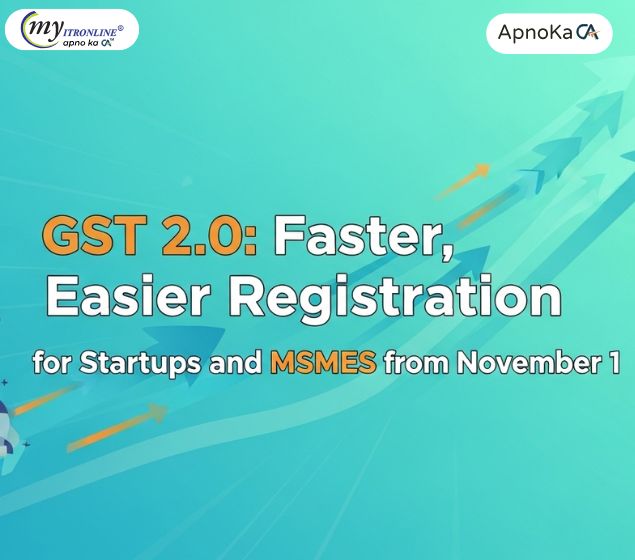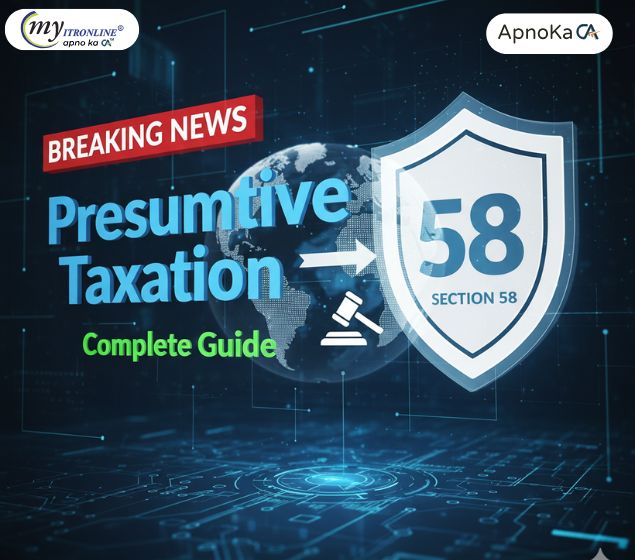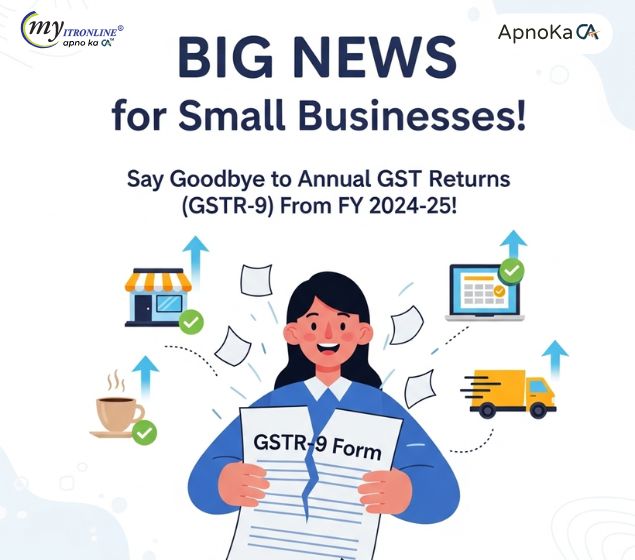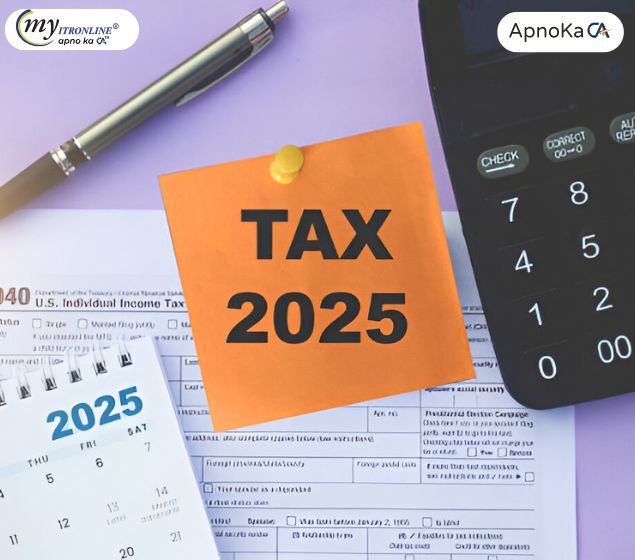# smallbusiness
12 posts in `smallbusiness` tag

Great News for Entrepreneurs! Get Your GST Number in Just 3 Days
GST 2.0 is a game-changer for small businesses in India. Starting November 1, 2025, new applicants can opt for a simplified GST registration process with automatic approval in just 3 working days. Designed for low-risk businesses, this reform reduces hassle and speeds up business launch.

GST 2.0: Faster, Easier Registration for Startups and MSMEs from November 1
From November 1, 2025, small businesses and startups in India can benefit from a simplified GST registration process. This reform promises approval within 3 working days for low-risk applicants and public sector entities. It’s part of the broader GST 2.0 initiative aimed at making tax compliance faster, easier, and more tech-driven. Learn how this change can help you start your business with less hassle and more confidence.

Breaking: Presumptive Taxation Moves to Section 58 - Complete Guide
The Income Tax Act 2025 introduces Section 58, replacing Section 44AD for presumptive taxation of small businesses. This provision applies to eligible assessees with turnover up to ₹2-3 crore, offering simplified tax computation at 6% for digital transactions and 8% for other receipts, or actual profit—whichever is higher. The change promotes digital payments and reduces compliance burden for small businesses while maintaining revenue collection efficiency.

Big News for Small Businesses: Say Goodbye to Annual GST Returns (GSTR-9) From FY 2024-25!
This blog post announces a significant and permanent change in GST compliance for small businesses in India. From Financial Year 2024-25, businesses with an annual aggregate turnover of up to 2 crore are exempt from filing the annual GST return (Form GSTR-9). The article details what changed, who benefits, and the tangible advantages like time and cost savings. It also highlights crucial reminders about continued monthly/quarterly filings, record-keeping, and turnover monitoring. The post emphasizes that this move will greatly enhance the "Ease of Doing Business" for millions of small enterprises.
.jpg)
Small Business & Professional Taxes: A Guide to Sections 44AA, 44AB, 44AD, 44ADA for FY 2024-25
For small businesses and professionals in India, understanding Sections 44AA, 44AB, 44AD, and 44ADA of the Income Tax Act, 1961, is essential for smooth tax compliance. This guide explains how these sections apply for the Financial Year 2024-25 (Assessment Year 2025-26). It covers necessary bookkeeping, tax audit rules, and the simplified presumptive taxation schemes that can greatly lessen the compliance burden for qualified taxpayers.

Easy Tax Rules for Small Businesses & Professionals (FY 2024-25)
This comprehensive blog post provides a detailed overview of the presumptive taxation schemes under Sections 44AD and 44ADA of the Income Tax Act, 1961, for the Financial Year 2024-25 (Assessment Year 2025-26). It explains the eligibility criteria, benefits, and important considerations (like the 5-year rule) for small businesses and professionals. Additionally, it clarifies the requirements for maintaining books of accounts under Section 44AA and the applicability of tax audits under Section 44AB, including the enhanced turnover limits. The blog aims to simplify complex tax provisions, helping taxpayers make informed decisions for better compliance and tax planning.

Advance Tax Guide for Presumptive Taxation Users (Sec 44AD/44ADA)
This blog explains how opting for presumptive taxation under Sections 44AD (businesses) and 44ADA (professionals) simplifies Advance Tax obligations, requiring only a single payment by March 15th instead of quarterly installments. It covers eligibility, calculation, and non-compliance consequences.
.jpg)
Key Updates on Presumptive Taxation in the Income Tax Bill 2025
Small enterprises, professionals, and independent contractors would all be impacted by the substantial changes to presumptive taxation brought about by the Income Tax Bill 2025, especially under Section 58. Important adjustments include clarifications on deductible costs, conformity with tax simplification objectives, and limitations on loss set-offs. This blog examines the ramifications of these modifications, how they affect taxpayers, and practical measures for financial planning and compliance.
.jpg)
How Section 44AD Helps Small Businesses Save Time and Money on Taxes
Section 44AD of the revenue Tax Act provides a presumptive taxation structure for small enterprises in India, enabling them to report revenue based on a specified proportion of sales. This blog discusses eligibility, benefits, income computation, and how it makes tax compliance easier by eliminating the need for comprehensive recordkeeping and tax audits.
.jpg)
Budget 2025 Brings 0% Tax for MSMEs Earning Up to 2 Crores
A ground-breaking tax reform was proposed in Budget 2025, offering companies with yearly sales up to 2 crores a 0% tax rate. This policy lessens the regulatory obligations for professionals, startups, and MSMEs by aligning with the presumptive taxation regime under Sections 44AD and 44ADA. For the benefit of small enterprises throughout India, the project seeks to increase entrepreneurship, simplify tax compliance, and encourage digital transactions.
_1_11zon.png)
GST Exemptions Uncovered: Smart Ways to Save on Taxes
The tax system in India has undergone a radical change since the Goods and Services Tax (GST) was introduced in 2017. This thorough reference examines GST exemptions intended to assist vital industries, cut expenses, and advance public welfare. Learn about the various exemptions, their advantages, and how consumers and businesses may take use of them for everything from necessities like dairy and cereals to services in healthcare, education, and agriculture. Recognize the significant economic impact of these exclusions, learn to save more, and maintain compliance.
.jpg)
GST Composition Scheme: A Simplified Tax Payment Option for Small Businesses
Instead of paying tax on each transaction, small firms can opt for the GST Composition Scheme, which is a tax payment scheme that allows them to pay a predetermined proportion of their sales as tax. The purpose of this program is to facilitate small business operations and lessen the burden of compliance for them.
